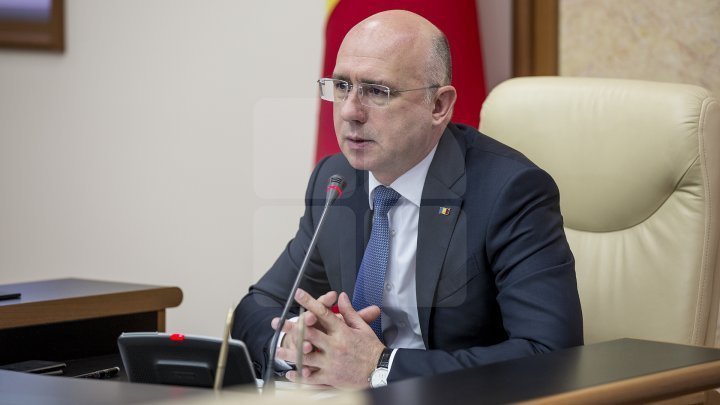Pavel Filip to the directors of reorganized authorities: Please, pay more attention to the quality of service, people should be satisfied
 foto: publika.md
foto: publika.md
The actions for streamlining the activity of the reorganized central administrative authorities were discussed today by Prime Minister Pavel Filip and the directors of entities subordinated to the Government. The Prime Minister stressed that meetings in this format will be held periodically to ensure a permanent communication between the authorities that have a major role in the implementation of policies and in interacting with people.
The prime minister called for the work of the reformed institutions to focus primarily on the comfort of citizens and economic agents.
"I want them to pay a special attention to the quality of the service - people must remain satisfied", said Pavel Filip, noting in particular the avoidance of rows. According to the prime minister, the whole CPA reform has been aimed at making services more efficient, with the stakes not on optimizations, but on the creation of strong institutions.
The prime minister said that the reforming process is almost done, some institutions are due to finish their activity regulations, to hire persons with leading positions and also to approve methodologies for calculating tariffs for services rendered to citizens.
The leaders of the reformed entities have thanked for the support given in the restructuring process, while demanding the authorities' involvement in overcoming organizational difficulties. Thus, there have been addressed issues related to the identification of the premises for the institutions created by the merger, the archiving of the documents in electronic format and the improvement of the salary level of the employees.
The importance of good collaboration between agencies in order to obtain the necessary information faster for citizens, with a possible digitization of data exchange and the diversification of interinstitutional communication tools was also highlithed.
After the reform, the central administrative authorities subordinated to the Government include: the Investment Agency, the State Agency for Intellectual Property, the Medicines and Medical Devices Agency, the National Agency for Research and Development, the National Agency for Food Safety, the Public Property Agency, the National Bureau of Statistics, the Interethnic Relations Agency, the National Social Insurance House, the National Health Insurance Company and the State Protection and Guard Service.
The Public Services Agency, the Electronic Governance Agency, the Information Technology and Cyber Security Service, the National Anti-Doping Agency and the Center for the Implementation of Reforms operate under the authority of the Government.
The prime minister called for the work of the reformed institutions to focus primarily on the comfort of citizens and economic agents.
"I want them to pay a special attention to the quality of the service - people must remain satisfied", said Pavel Filip, noting in particular the avoidance of rows. According to the prime minister, the whole CPA reform has been aimed at making services more efficient, with the stakes not on optimizations, but on the creation of strong institutions.
The prime minister said that the reforming process is almost done, some institutions are due to finish their activity regulations, to hire persons with leading positions and also to approve methodologies for calculating tariffs for services rendered to citizens.
The leaders of the reformed entities have thanked for the support given in the restructuring process, while demanding the authorities' involvement in overcoming organizational difficulties. Thus, there have been addressed issues related to the identification of the premises for the institutions created by the merger, the archiving of the documents in electronic format and the improvement of the salary level of the employees.
The importance of good collaboration between agencies in order to obtain the necessary information faster for citizens, with a possible digitization of data exchange and the diversification of interinstitutional communication tools was also highlithed.
After the reform, the central administrative authorities subordinated to the Government include: the Investment Agency, the State Agency for Intellectual Property, the Medicines and Medical Devices Agency, the National Agency for Research and Development, the National Agency for Food Safety, the Public Property Agency, the National Bureau of Statistics, the Interethnic Relations Agency, the National Social Insurance House, the National Health Insurance Company and the State Protection and Guard Service.
The Public Services Agency, the Electronic Governance Agency, the Information Technology and Cyber Security Service, the National Anti-Doping Agency and the Center for the Implementation of Reforms operate under the authority of the Government.